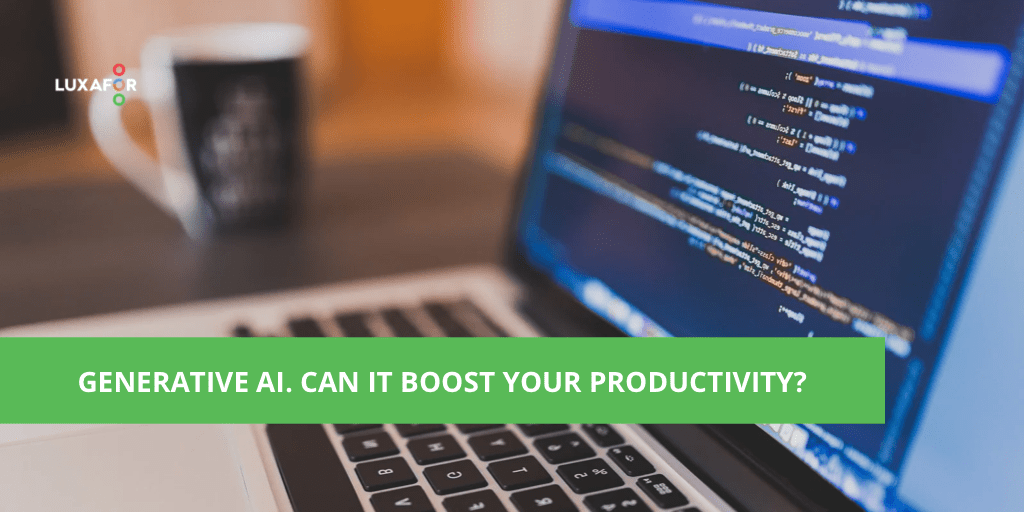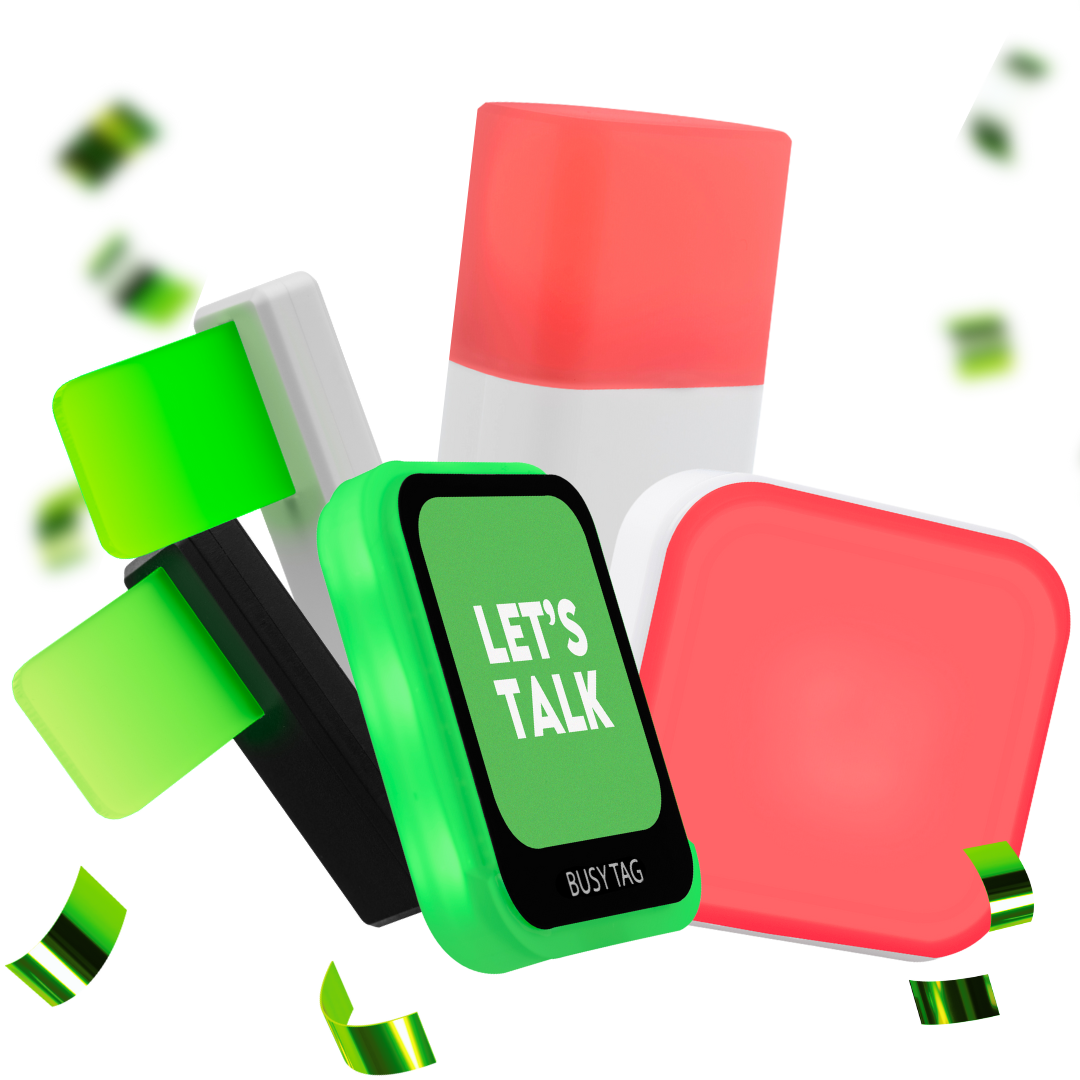Generative AI. Can it boost your productivity?
- Updated on: June 26, 2024
A lot of us have heard already about AIs that can take over the world, have we? I’m joking! Or am I?
In recent years, the field of artificial intelligence (AI) has seen increasing advances in its technology and capabilities.
Generative AI, also known as generative adversarial networks (GANs), has become tremendously popular among businesses and organizations in recent years, as it offers a range of potential benefits in terms of productivity and efficiency. Generative AI is designed to generate new and creative solutions to problems and tasks, often with little or no human intervention. This includes its ability to generate AI images for use in marketing, design, or even personal projects, providing visually compelling content with minimal effort. By automating this process, businesses can save time, money, and resources on activities that would otherwise require manual labor or extensive research. From creating stunning visuals to using tools like an AI video editor online for high-quality video content, and even an AI UGC video generator to create engaging user-generated style videos, generative AI is revolutionizing how businesses approach creative tasks.
GANs have the potential to revolutionize many different industries, from healthcare to entertainment. In this article, we will explore some of the most exciting and effective examples of gen AI in action in terms of effectiveness and ability to work productively.
If you’ve heard about it already good – maybe you’ll find something new here. If you haven’t heard – welcome to the new world where information and knowledge are the keys.
Also, you will find out about what generative AI is, examples of it, how it works, how it can benefit to your professional productivity and showcase some examples of how it is currently being used in the world today. We will also discuss the potential implications of this technology for the future of creativity.
Do you want to keep a track of your productivity tips completion? And maintain new yourself improving habits? Get your free PDF version of the 100 Productivity Tips you need in your life in 2023 and start today!
1. What is Generative AI?
Generative AI (Gen AI) is a type of artificial intelligence (AI) technology that uses deep machine learning algorithms to develop new, original content autonomously. This type of AI would have the ability to transform numerous different industries from art and music to marketing and advertising, by automating the creative process. Making it more productive. An API for marketing and advertising can help businesses harness Gen AI to create anything from marketing campaigns to audio tracks and even 3D models and artworks. Gen AI can be used to create anything from marketing campaigns to audio tracks and even 3D models and artworks.
AI-generated music can be composed in a variety of styles and genres. Many of these songs are indistinguishable from those created by human composers. Music that is AI-generated can also be used in video games, films, and other types of media.
Undoubtedly, the integration of AI-generated soundtracks for films is a remarkable advancement in the media tech industry, revolutionizing the way we experience audiovisual content.
Gen AI algorithms are based on neural networks (ANN), which are networks of interconnected nodes that process input data to produce an output. The output of gen AI algorithms is highly creative, efficient, and at times unpredictable.
The thing is that AI will grow even more. If you know who Stephen Hawking is, you need to understand what we’ll be referring to. Concept Brain-to-Text have you heard about it? But yes, that’s basically what Stephen Hawking used as he was fully paralyzed. For example, we may mention these systems that already exist – Speech from Brain, Non-invasive Brain Recordings.
Just imagine – healthcare could be led by AI. Especially, as one of the most popular implications of gen AI is in the healthcare sector. AI is being used to help diagnose diseases and detect anomalies in data. Tools like Sprypt’s AI Medical Scribe are already transforming clinical documentation by converting doctor-patient conversations into structured SOAP notes, saving time and improving accuracy. Generative AI software development has revolutionized how medical imaging systems are created and optimized for clinical use. Artificial intelligence algorithms can be exploited to generate medical images that can be used for diagnostic
And it’s in the near future, as plenty of systems already operate in healthcare, and gains are pretty impressive: 90% successful diagnoses compared to 70% of human predictions. You can read more in the book Life 3.0 by Max Tegmark.
2. How Does Generative AI Work?
GANs work by training a neural network on a dataset of existing data. The neural network learns patterns and trends from the data and then uses this knowledge to make new content autonomously and efficiently.
The generative AI algorithm is based on the patterns it has learned from the training data. What is given as an output may be similar to the input, but it is not identical.
For instance, OpenAI created Codex using more than 100 GB of code from Github, an open software source. When given a simple description of what it’s meant to perform, such as calculating the vowels in a text string the program may generate code.
One more topic we’d like to discuss here is text-to-NFT. I think you’ll find out what is NFT if you haven’t heard about it yet, but lately, it was a new trend that was difficult to miss. So, StarryAI is an AI art generation tool that allows you to make NFTs. Simply type in a text prompt, and our AI will turn your words into pieces of art. As another example can stand LensAI.
And now let’s discuss more sectors where ANNs can be used.
3. Examples of Generative AI Usage
It can be utilized in a variety of different industries to automate and skyrocket the creative process. Here are some examples of how generative AI is being employed in the world today:
- Music: Gen AI is being used to produce original music. AI algorithms are trained on already-produced music and then used to create new compositions. Revolutionary technology has the capability to transform the world of the music industry by automating innovative activities. Examples of AIs that can do that: Play.ht, Resemble.AI, Descript and etc.
Another example of ANNs is the “AI-DJ” created by Sony CSL. The AI-DJ is an algorithm that can generate new music from any genre. It is able to take a song and create an entirely new song using similar sounds and styles. This allows music producers to easily create new music with little effort.
- Art: AI trains on existing art and then use it to make new pieces. This innovation has the capacity to change the art world by making it possible to create art without a human artist. Examples of such: MidJourney, DALLE-2, Imagen, Jasper and etc.
- Marketing: Algorithms of AI are trained on marketing campaigns that already exist and then used to produce new examples. Such innovation has the capacity to modify the marketing industry by optimizing the inventive process. For instance: OpenAI GPT-3, Grammarly, Jasper, Blog Idea Generator and etc.
P.S. It’s not there yet, but at first glance, it can be quite impressive. And don’t forget how long this technology is with us and how much progress it already has.
- Video Production: GANs are being trained on existing videos and then used to create new ones. It also generates videos and animations, such as for movie special effects, or creates computer-generated imagery (CGI) for television shows and movies. The above technological advancement has the power to change the video production industry by making it possible to produce videos without a human videographer. For simpler and presentation-style content, an AI video generator like Powtoon, combined with an AI voiceover tool, can help users quickly create animated videos with minimal effort.
- 3D Modeling: Among the most common uses of generative deep learning is in the computer graphics field. GANs can be implemented to create realistic 3D environments, characters, and objects. This is done by using a variety of algorithms to implement realistic textures, lighting, and other aspects of a virtual world. These environments can be used in video games and other types of digital media. ANN algorithms are educated on present 3D models and then utilized to produce fresh ones. By automating the creative process, this technology has the possibility to transform the 3D modeling business.

Moreover one of the most common and efficient uses of GANs is in the context of content generation. Content generation is a process whereby a computer algorithm creates new content based on existing resources. This can be done in a variety of ways, from text to image and video production. Businesses can utilize gen AI to create content for blogs, websites, social media posts, and more, with minimal input from human employees. This can save businesses time, money, and resources on content creation, allowing them to focus on other tasks.
For businesses looking to harness the full potential of these technologies, engaging with Generative AI consulting services can provide the expertise and tailored solutions needed to effectively implement AI strategies and optimize productivity
Another very good example of artificial intelligence is machine translation. Companies like Google and Microsoft use machine translation to quickly and accurately translate text from one language to another ensuring efficient time management and streamlining your workflow.
Generative AI can also be used to automate mundane tasks and processes. Many businesses have to complete a number of repetitive tasks on a daily basis, such as data entry, customer support, and customer segmentation. ANNs can be applied to automate these tasks, eliminating the need for human oversight and freeing up time and resources for more complex tasks. This type of automation can also help to reduce errors and improve accuracy since the AI is able to complete tasks more quickly and accurately than humans.
GANs can also be incorporated to improve decision-making and optimize operations. By analyzing data, AI can identify patterns and trends that humans may not be able to detect. This can help businesses to make more informed decisions and optimize their operations in order to maximize efficiency and productivity. AI can also be used to make predictions, such as forecasting customer demand or sales or predicting future trends in the market. This predictive capability can help businesses to plan ahead and make decisions based on more accurate information.
Finally, gen AI can also be used to improve customer experience. AI may provide personalized recommendations to customers, based on their preferences and past purchases. As well as, automate customer service, by responding to customer queries quickly and accurately. This can help businesses to provide a better experience for their customers, as well as reduce the amount of time and resources spent on customer service. For businesses looking to leverage the full potential of AI, partnering with a company that offers comprehensive artificial intelligence development services can provide customized solutions to enhance productivity and innovation.

4. Implications of Generative AI
The implications of generative AI for the future of creativity and production are immense. This technology could lead to a new era of creativity where machines are working to produce original content at scale. This could dramatically reduce the amount of time and resources needed to create content and lead to new opportunities for creative professionals.
Gen AI could also lead to new opportunities for businesses. Companies could use generative AI to make content quickly and efficiently, allowing them to concentrate on more essential responsibilities. This could lead to increased efficiency and cost savings for businesses.
Generative AI offers vast creative potential. With text-to-speech tools, it simplifies content creation, boosting productivity and enabling businesses to focus on core tasks
5. How can it help me in everyday life?
Artificial Neural Networks can be used in a variety of ways, creating text, and visuals, such as images and videos.
One of the most prominent examples of gen AI is Google’s DeepDream. DeepDream is an algorithm that takes images and produces new images based on them. It is able to recognize patterns in the images and create new images that contain those patterns. It has been used to make surrealist art as well as to create “dreams” from photos. Generative AI can also be utilized to create new products or services or to improve existing ones.
But for now, there is a drawback – for instance, Google Algorithms now detect if the text was AI-generated or not, and based on that it defines whether to promote this blog, text, introduction, or whatever – or not. As of now, it lowers AI-generated texts in SEO.
As well as, Logo AI. In case you need to create a logo for yourself, your employer, or a friend – Logo AI will indeed help you with this case – just choose what you need and how you like it, and how it may look, and decide on which of outputs suits the best.
Other opportunities are listed a bit above.
Work smarter, not harder, but double-check.

Conclusion
In conclusion, GANs have a wide range of potential applications in terms of productivity and efficiency. Generative AI is a type of artificial intelligence (AI) technology that uses machine learning algorithms to generate original content autonomously. This type of AI has the capacity to transform many different industries from art and music to marketing and advertising, by streamlining the innovation side. From content generation to automation of mundane tasks and decision-making optimization, AI can help businesses to save time, money, and resources. By using generative AI, businesses can improve their operations, increase their efficiency, and provide a better customer experience.
Also, it is a powerful tool for businesses, allowing them to create and optimize content quickly, efficiently, and cost-effectively.
The possibilities for the future of creativity and manufacturing are enormous. This technology might usher in a new era of creativity in which machines make creative stuff on a large scale. This could dramatically reduce the amount of time and resources needed to create content and lead to new opportunities for creative professionals. Generative AI could also lead to new opportunities for businesses, allowing them to focus on more important tasks and leading to increased cost reductions and increased efficiency. Which will definitely affect companies’ productivity.
What do you think – was this text computer generated or it was made by a real person?
LUXAFOR HELPS PEOPLE TO ACHIEVE THEIR GREATEST PRODUCTIVITY LEVELS WITH A WIDE VARIETY OF OFFICE PRODUCTS. LET’S BE PRODUCTIVE TOGETHER!

















